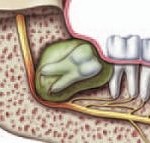Brooke Mueller in Intensive Care after Dental Surgery-UPDATED

At the beginning of this month, we talked about Charlie Sheen’s anger management issues when he was arrested for allegedly threatening his wife, actress Brooke Mueller. Legal proceedings related to this were postponed earlier this week when Mueller underwent oral surgery for an impacted wisdom tooth. Last night, Mueller was admitted to the intensive care unit at Sherman Oaks Hospital, reportedly with a fever of 105 and an infection related to her wisdom tooth surgery. Mueller’s lawyer, Yale Galanter, told People magazine “They are trying to get the infection and fever under control. The infection has spread.” Two and a Half Men star Sheen rushed to the hospital to be with his wife, despite the protection order against him. As Sheen’s manager Mark Burg told the NY Daily News, “Charlie loves his wife very much and was extremely concerned about her. She’s the person he loves in life, and he went to the hospital, spoke to the doctors and got reassurance she’s going to be okay.”
What are wisdom teeth?
Wisdom teeth are the third molars and the last ones in the series of teeth. If they erupt they come out at the age of 16 to 24 years old. It is thought that those teeth are called “wisdom teeth” because they appear in the mouth very late, much later than the other teeth, at an age where people have more wisdom than when they were children, when all the other teeth erupt.
What is an impacted wisdom tooth?
When the jaw isn’t large enough to accommodate wisdom teeth, they can become impacted (unable to come in or misaligned). Wisdom teeth may grow sideways, emerge only part way from the gum or remain trapped beneath the gum and bone.
What problems can an impacted wisdom tooth cause?
- Impacted teeth can be painful and lead to infection.
- They may also crowd or damage adjacent teeth or roots.
- More serious problems may occur if the sac surrounding the impacted tooth becomes filled with fluid and enlarges to form a cyst. As the cyst grows it may hollow out the jaw and permanently damage adjacent teeth, the surrounding bone and nerves.
Many dentists will suggest that unless a wisdom tooth has completely erupted and is in perfect alignment that it be removed to prevent these complications. It is often preferable to have wisdom teeth removed before age 25 due to the flexibility of bone, which will allow an easier removal and better healing. As a person ages, the bone becomes more rigid, the nerve roots become longer and complications can develop.
For more information
| Resounding Health(tm) Impacted wisdom teeth |
UPDATE: 1/21/10
We have now learned that Brooke Mueller was hospitalized with pneumonia in both lungs, and that she is responding to antibiotics. Her mother, Moira Fiore, told People magazine: “Brooke came in at the very last minute because sepsis from an infection following surgery for her impacted wisdom tooth had invaded her system, and her organs were starting to shut down. Today her lungs, kidney and liver functions look better. But doctors are still worried about her low blood pressure.”
Earlier in the week, Mueller had undergone oral surgery for an infected impacted wisdom tooth. At some point, bacteria entered her bloodstream and invaded her lungs, and possibly other organs. This is called bacteremia. If the number of bacteria is small, the body’s immune system will take care of it. However, if the number is higher or if the organism is more virulent (likely to cause disease), then the patient has sepsis, or septicemia. Septicemia can begin with spiking fevers, chills, rapid breathing, and rapid heart rate. The person looks very ill.
The symptoms can rapidly progress to shock with fever or decreased body temperature (hypothermia), falling blood pressure, confusion or other changes in mental status, and blood clotting problems. Low blood pressure can lead to organ shut down, such as kidney and liver failure.
Treatment requires hospitalization, often in an intensive care unit. Fluids and medicines are given by an IV to maintain the blood pressure.
Oxygen will be given. Antibiotics are used to treat the infection. Plasma or other blood products may be given to correct any clotting abnormalities.
It is not known whether Mueller’s bacteremia came from the original infection that prompted the surgery, or whether bacteria were introduced at surgery or invaded the surgical site later. There are many germs that normally live in the mouth that can cause disease. It is not uncommon that a small amount of bacteria enter the bloodstream whenever a dental procedure is performed. However, as stated above, most of the time the body is able to take care of this. In addition, if there is a lot of manipulation of the gums during a procedure, a physician may put a patient on antibiotics for a short time afterward to prevent a generalized infection.



























0 comments